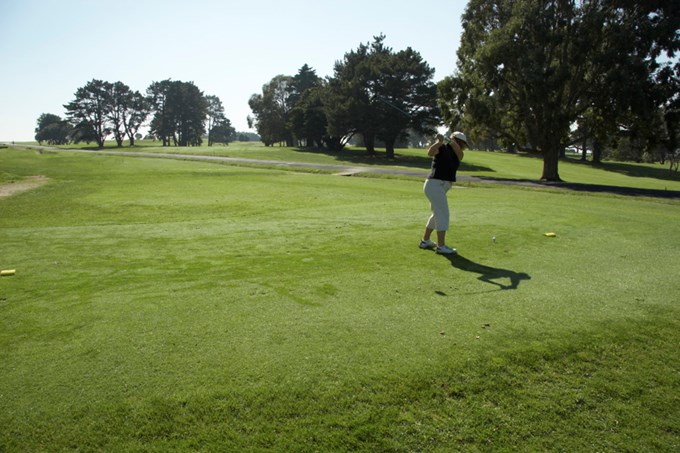Planting thousands of trees on golf courses at Āwhitu and Clarks Beach has Franklin Local Board deputy chair Alan Cole in two minds.
He reckons he’s pretty much hit every tree on the courses already, and adding more isn’t going to do much for his game, but he’s also delighted the clubs are part of an Auckland Council initiative to help the environment.
“Clarks is already a place where possums fear to tread thanks to the work of dedicated volunteers, and in particular young Reon Morrison, who is doing outstanding work looking after trapping and bait stations.
“Having it join council’s Golf is Green scheme shows golf courses don’t have to serve only golfers. Clubs can take an active role in improving the local environment, attracting birdlife and generally just being a much better place to visit.
“Golf is Green has brought more than 20 courses and their neighbouring communities together and that’s a terrific thing because it connects these green spaces with collective care for the environment.”
He says the goal is to see all of Auckland's 36 courses on the initiative.
Auckland Council Golf is Green senior partnership specialist Izabella Joshi says it’s hoped the initiative will lead to more collaboration with the communities that surround them.
“Franklin has active and successful pest-free campaigners, most notably Te Ara Hikoi, and it makes sense to have collaboration between groups like theirs and landowners – including golf courses.”
Pupuke Golf Course on Auckland’s North Shore has already been transformed, with 2,000 trees and shrubs planted, birdlife significantly increased, and a shift away from chemical to natural greenkeeping.
The club has even changed its name to simply Pupuke, to better reflect its vision for the future as a welcoming community space.
Cole says there is a lot clubs can do. “Council has designed an Ecological Enhancement Plan for clubs that outlines resource-efficient pest reduction strategies and practical restoration programmes with local communities, schools and community groups.
“It’s an approach that fosters a shared responsibility with council leading the way and the clubs financing the tools and trees, but the real heroes being the volunteers who get involved.”
Stay connected
Sign up for your Local Board E-news and get the latest news and events direct to your inbox each month. Or follow us on Facebook.


